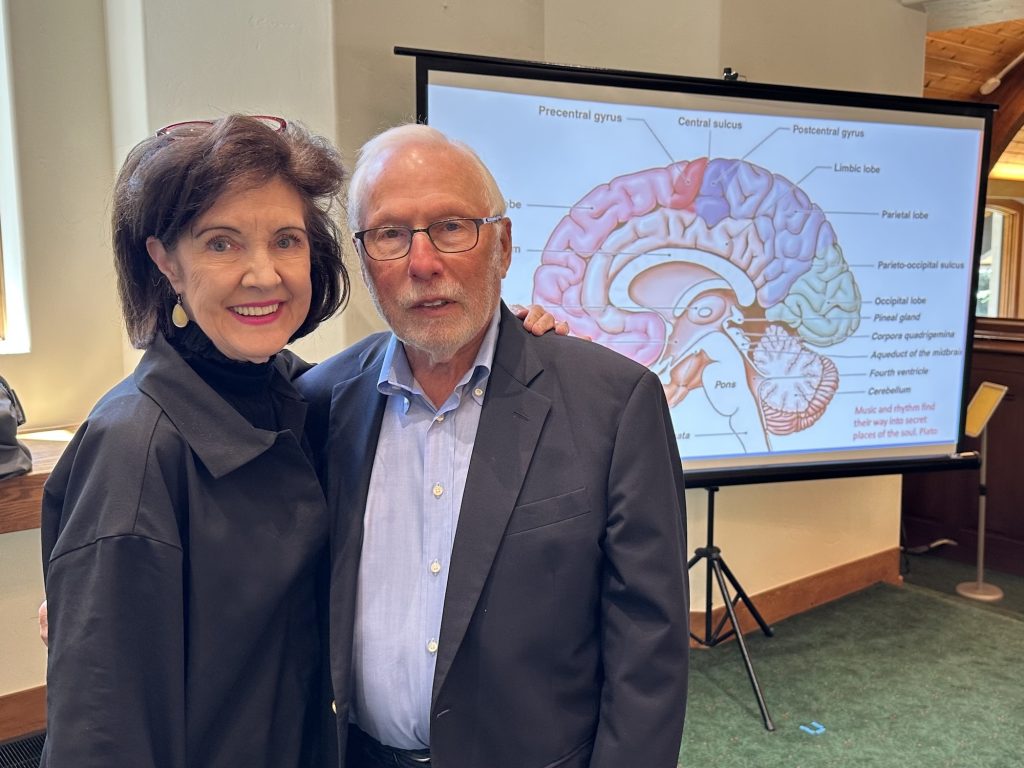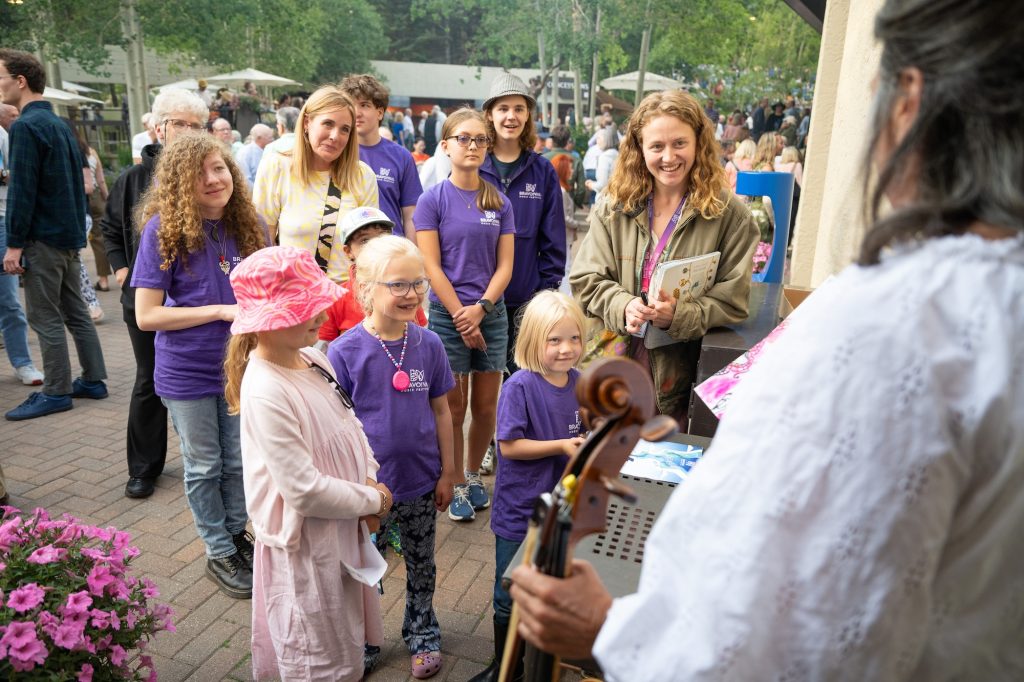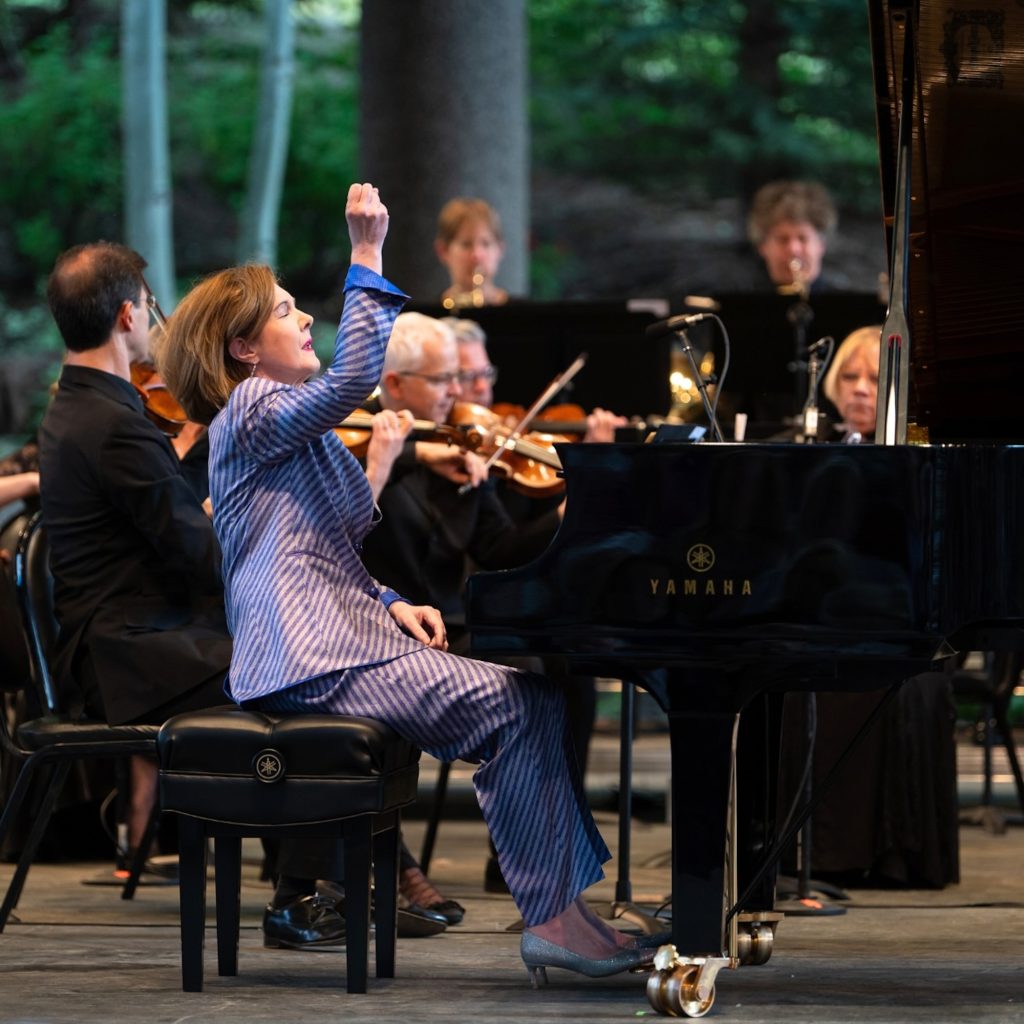Bravo! Vail event explores the effects of music on the brain
Dr. Kalmon D. Post joined Bravo! Vail’s artistic director, Anne-Marie McDermott, in a lively talk about the scientific side of music

Tricia Swenson/tswenson@vaildaily.com
Can music affect the brain? That was the question asked at Bravo! Vail Music Festival’s event on July 9, part of the festival’s education and enrichment series.
“I’ve had the great pleasure of having many conversations with Dr. Kal Post over the years and being utterly fascinated during those conversations,” said Anne-Marie McDermott, artistic director for the Bravo! Vail Dance Festival. “It’s been a personal fascination for me and how the brain is related to classical music. We’ve all read studies of classical music’s effects on us, but there’s so much more research and learning to do.”
McDermott is a renowned pianist who has performed around the world and will often take the stage during Bravo! Vail’s season and play with other performers and orchestras.
McDermott was joined at the Vail Interfaith Chapel by Dr. Kalmon D. Post, an endocrinologist and neurosurgeon who is internationally known and is chair emeritus of the Department of Neurosurgery at the Icahn School of Medicine at Mount Sinai in New York. Post originally got involved with learning about how music affects the brain when he started working with the in New York. The nonprofit goes into underserved public schools around the five boroughs. Its programs expand access to music to kids and helps them learn not only collective music-making, but also critical life skills and how to develop meaningful peer connections.
“As many of you know, art and music are not taught in schools at all anymore. So, we offer music education to those interested and can even provide the instruments for free,” Post said. “They must have six hours of education every week after school and when I saw that program, I got enthralled with it, so now I’m the chair of the board. So, the brain and music education are two things that I’ve been interested in starting from that point.”

Support Local Journalism

Post cited many studies done that talk about the connection between music and what it does to the brain and had plenty of slides that he presented to explain what’s going on in various parts of the brain relating to music.
“It’s the corpus callosum that connects the two sides of the brain and lets the communication flow between the motor areas, the visual areas, the auditory areas,” Post said. “You can see all the active sites of increasing blood flow while playing music. So, specific regions of the brain involve the temporal lobe, which processes auditory information that helps us appreciate tone and pitch. The right lobe for more creative, emotional, while the left lobe is more logical, where you’ll find rhythm and pitch with the language area. The cerebellum has a lot to do with rhythm and timing, coordinating movements, especially when listening or playing music. That’s when you get your foot tapping along with the music.”
Post said that several long-term studies with children and music found the following from research conducted by Nina Kraus, Ph. D., a scientist and inventor and amateur musician at Northwestern University, and Aniruddh D. Patel, professor of psychology at Tufts University known for his research on cognitive neuroscience and music.
“Longitudinal studies into music’s impact on the brain and language skills show enhancement of timing cues in speech after a year of music and 8 to 10-year-old children show increases in verbal intelligence, reading, cognitive skills, which are not found in the control group observed during the same time,” Post said. “These are key events for music education as far as I’m concerned. On the whole, musicians outperform non-musicians in a wide variety of tasks, verbal memory, walking memory and sequencing.”
Post even shared a quote from ancient Greek philosopher, Plato: “Music and rhythm find their way into the secret places of the soul.”

Bravo! Vail’s Inside the Music event allows time for a Q-and-A session and many questions focused not only on children and music but also on adults and music.
“Music helps regulate emotions, reducing stress and anxiety. Listening to music can improve memory, attention and overall cognitive function. It can even help with pain relief. There are some studies showing that less pain medications are needed in ICU patients if there’s music playing,” Post said. “In physical health, music often lowers blood pressure, reduces cortisol levels and increases social bonding.”
Post was also asked about the effects of music on those with Parkinson’s disease, Alzheimer’s disease and other ailments.
“With Parkinson’s disease, there are numerous studies showing the mobility is better because of the rhythmic training that can be obtained in music. When people have a stroke, they can increase cognitive and emotional measurements afterwards,” Post said. “Someone with Alzheimer’s may not recognize their family members but can sing every word in a song because recent memory and old memory are stored differently. Certain things trigger old memory, and music happens to be one of them.”
A little over an hour wasn’t enough time to answer all the questions the audience had about music and the brain, but starting the conversation is important to Bravo! Vail.
“The entry points for people to a deeper relationship with music are as numerous and varied as humanity itself,” McDermott said. “I am always eager to open another entry point for listeners. Music is a gift that never stops giving.”
To learn more about upcoming Inside the Music programs or other educational opportunities, go to .
Colorado has new wolf packs in Jackson, Routt and Rio Blanco counties
Parks and Wildlife considers a group of wolves a pack once wolves have successfully reproduced.











